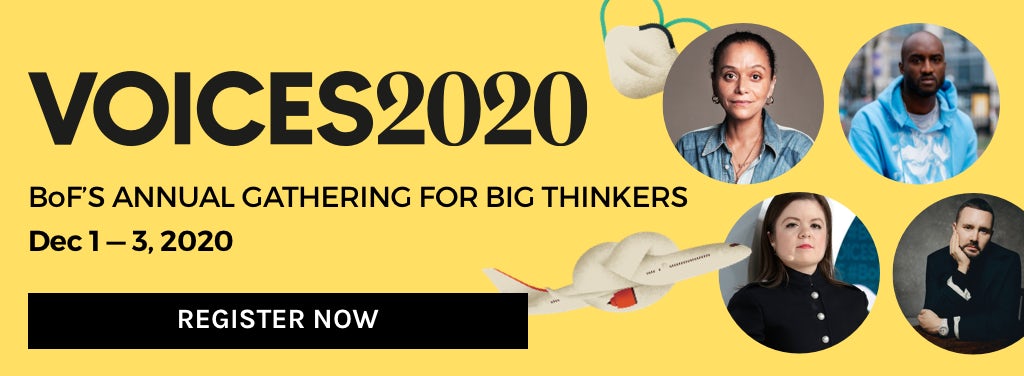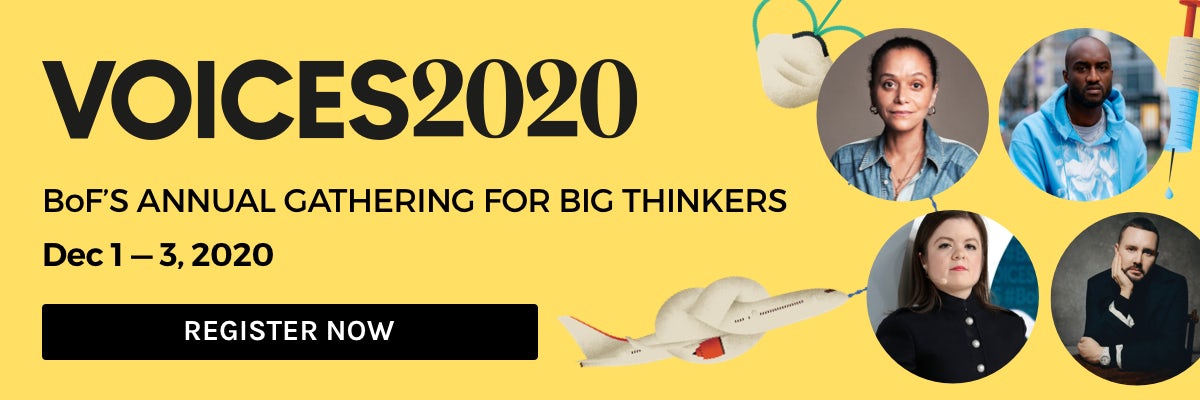Op-Ed | A Sustainability Solution for Fashion: Sell Signifiers, Not Stuff
Louis Vuitton has collaborated with Riot Games’ League of Legends to create branded virtual assets for the video game. Louis Vuitton.

The fashion industry seems to think it can solve its sustainability problem with manufacturing processes that are more environmentally friendly: more efficient supply chains, more organic materials, less toxic dyes, and so on. The assumption is that the way to become more green is to keep on making more stuff, but doing it in a different way.
To be sure, this approach may result in incremental progress. But as Albert Einstein said, we can’t really solve problems by applying the same kind of thinking that created them. Similarly, the solution to fashion’s sustainability challenge is unlikely to come from the same thinking that created it, even if the stuff being produced is more sustainable.
Instead, we need to dig deeper and see that it’s not how we manufacture but why we manufacture that is the root of the problem. The truth is, nobody needs another handbag but our consumer culture has convinced billions of people that they do. The tragedy isn’t just that fashion is damaging the environment. It’s also doing so in pursuit of false gods; we’re selling products that rarely offer real fulfilment and we’re destroying the planet in the process.
To be blunt, we’re enticing people to spend more money on more things they don’t need to create impressions that won’t last on people they don’t care about while sacrificing our world.
The underlying dilemma we face is not: “How can we make our means of production and manufacturing more sustainable?” The real question is: “How can we reconcile our aspirations for the ‘good life’ with the limitations and constraints of a finite planet?”
It’s not how we manufacture but why we manufacture that is the root of the problem.
When I think about what makes up a “good life,” what comes to mind is personal growth, discovery, learning, friendship, family, community, making a difference and helping others. None of these things are material. Interestingly, the main reasons why people buy fashion and luxury goods aren’t actually material either. First and foremost, they buy them in order to convey status. They buy them because it helps them cultivate their identity in the eyes of others. They want to associate themselves with a particular brand and show off that association.
None of those things necessarily have anything to do with tangible goods. Rather, they have everything to do with intangible things like image and reputation. If this is the case, is it really necessary to continue to produce so much material stuff to fulfil our desires?
Indeed, if what we fundamentally desire (and are willing to pay for) is intangible, then wouldn’t it be better for the planet and everyone inhabiting it to decouple these desires (and the economic growth that depends on them) from material objects? Simply put, could fashion companies manufacture and sell way less tangible stuff (clothes, bags, shoes) and sell way more intangible stuff (media, experiences, community)?
In effect, what I’m advocating for is the dematerialisation of fashion; that fashion brands cease being fashion brands in the traditional sense and start acting more like media-experience companies that may also happen to sell clothes and accessories.
Thus far, signifiers of prosperity and the “good life” have come in the form of expensive material things. But remember these objects have little value beyond the meaning we give them. We have the power to break free from the straitjacket of materialism that’s destroying ourselves and our world, and reassign social value to immaterial things, perhaps even unlocking a healthier definition of a “good life” in the process.
Remember that, if the fashion industry has taught us anything, it’s that it’s capable of making us fall in love with all sorts of signifiers we didn’t even know we desired. And these new symbols could deliver things like community connection, not just social status.
Aaron Chamberland is a marketing and communications specialist in the fashion and luxury sector.
The views expressed in Op-Ed pieces are those of the author and do not necessarily reflect the views of The Business of Fashion.
How to submit an Op-Ed: The Business of Fashion accepts opinion articles on a wide range of topics. The suggested length is 700-1000 words, but submissions of any length within reason will be considered. All submissions must be original and exclusive to BoF. Submissions may be sent to [email protected]. Please include ‘Op-Ed’ in the subject line and be sure to substantiate all assertions. Given the volume of submissions we receive, we regret that we are unable to respond in the event that an article is not selected for publication.
Related Articles:
Op-Ed | What Consumers Really Think About Sustainability
How the Climate Crisis Is Reshaping Luxury
When ‘Mea Culpa’ Is the Best Marketing
BoF’s ANNUAL GATHERING FOR BIG THINKERS
VOICES brings together the movers, shakers and trailblazers of the global fashion industry and unites them with the big thinkers, entrepreneurs and inspiring people who are shaping the wider world, hosted by BoF founder and editor-in-chief, Imran Amed, and led by BoF’s expert editors and correspondents.
Register now to reserve your spot.
1. THE WIDER WORLD: Making sense of 2020 and charting a way forward
2. INSIDE THE FASHION SYSTEM: Addressing the industry’s most important challenges and opportunities
3. TECHNOLOGY & INNOVATION: Exploring how new technologies will change consumer behaviour
4. REINVENTING RETAIL: Understanding how forces accelerated by the pandemic are completely reshaping the retail landscape
5. LIVE YOUR BEST LIFE: Finding the balance, insight and inspiration to be the most authentic, healthy version of yourself
JOIN US FOR A GLOBAL CONVERSATION ABOUT THE FUTURE OF THE FASHION INDUSTRY
This year, VOICES will be delivered via a live broadcast adapted to the unique circumstances of the Covid-19 era — and BoF Professional and BoF Professional Student members anywhere in the world can take part in this live global conversation as the industry looks ahead to 2021. If you are not a member, sign up today with our 30 day trial, including access to VOICES 2020.



